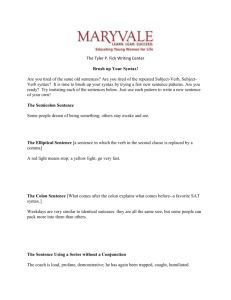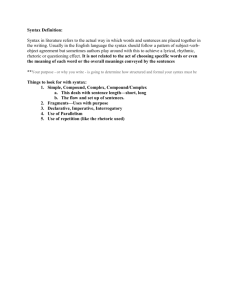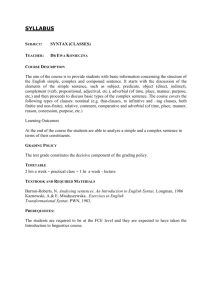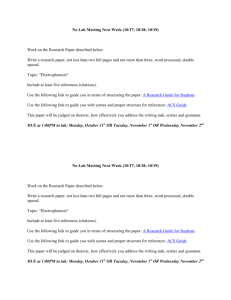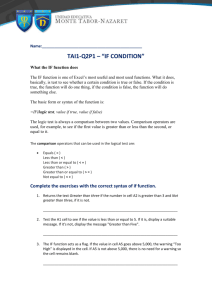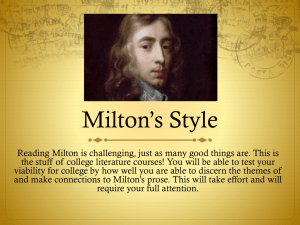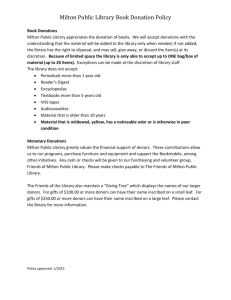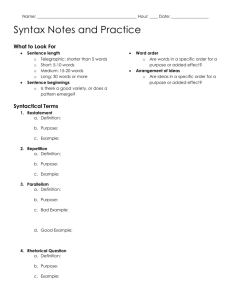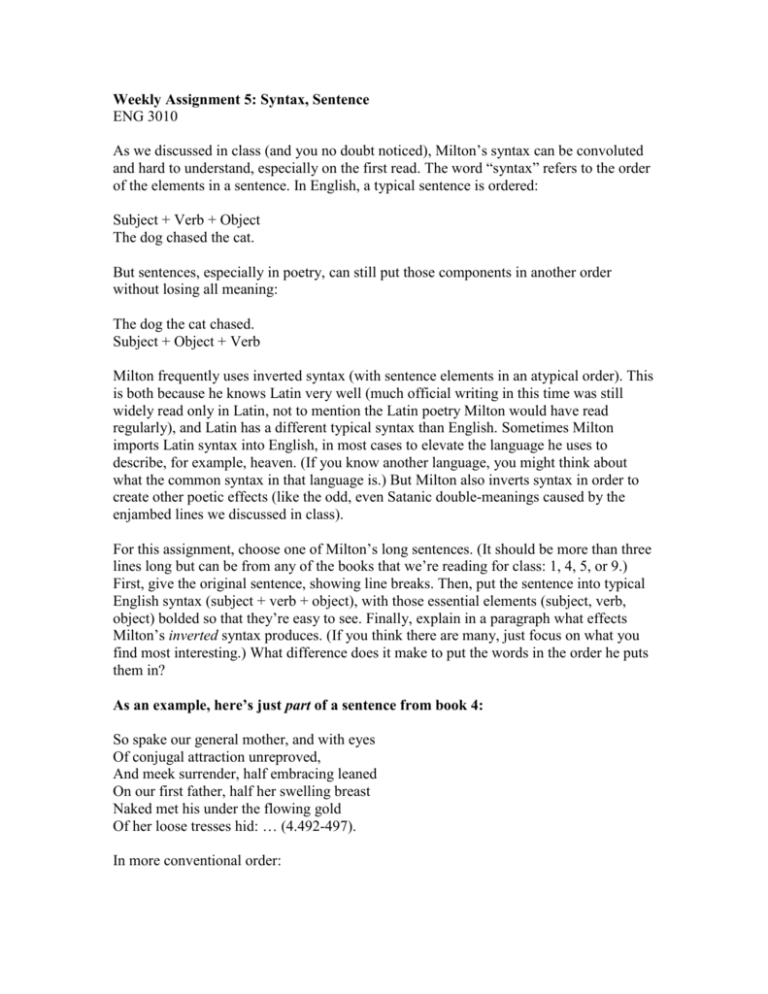
Weekly Assignment 5: Syntax, Sentence
ENG 3010
As we discussed in class (and you no doubt noticed), Milton’s syntax can be convoluted
and hard to understand, especially on the first read. The word “syntax” refers to the order
of the elements in a sentence. In English, a typical sentence is ordered:
Subject + Verb + Object
The dog chased the cat.
But sentences, especially in poetry, can still put those components in another order
without losing all meaning:
The dog the cat chased.
Subject + Object + Verb
Milton frequently uses inverted syntax (with sentence elements in an atypical order). This
is both because he knows Latin very well (much official writing in this time was still
widely read only in Latin, not to mention the Latin poetry Milton would have read
regularly), and Latin has a different typical syntax than English. Sometimes Milton
imports Latin syntax into English, in most cases to elevate the language he uses to
describe, for example, heaven. (If you know another language, you might think about
what the common syntax in that language is.) But Milton also inverts syntax in order to
create other poetic effects (like the odd, even Satanic double-meanings caused by the
enjambed lines we discussed in class).
For this assignment, choose one of Milton’s long sentences. (It should be more than three
lines long but can be from any of the books that we’re reading for class: 1, 4, 5, or 9.)
First, give the original sentence, showing line breaks. Then, put the sentence into typical
English syntax (subject + verb + object), with those essential elements (subject, verb,
object) bolded so that they’re easy to see. Finally, explain in a paragraph what effects
Milton’s inverted syntax produces. (If you think there are many, just focus on what you
find most interesting.) What difference does it make to put the words in the order he puts
them in?
As an example, here’s just part of a sentence from book 4:
So spake our general mother, and with eyes
Of conjugal attraction unreproved,
And meek surrender, half embracing leaned
On our first father, half her swelling breast
Naked met his under the flowing gold
Of her loose tresses hid: … (4.492-497).
In more conventional order:
Our general mother spake so and leaned on our first father, with unreproved eyes of
conjugal attraction and with meek surrender, while half embracing him, as half her
swelling, naked breast met his, hid[den] under the flowing gold of her loose tresses.
The first thing we notice when we unspool the sentence and put it in a more conventional
order is that most of it is made up of dependent clauses. That is, most of the sentence is
modifying the (fairly simple) main clause, which goes something like
Our mother spoke so [in other words, she said what was just quoted] and [then] leaned on
our father.
Those dependent clauses are important, though; they give us a better sense of Eve’s
character and of the relationship between Eve and Adam. She is coming on to him here,
making a move, but the poet also makes sure to remind us that there’s nothing wrong
with sex between married people, especially before the Fall (“conjugal [marital]
attraction unreproved”—unreproved means “blameless”). This is a sentence that plays up
the erotic charge between them, while at the same time seeming to hesitate, to show some
reluctance about describing their sexual embrace. (Or is it instead describing Eve’s
hesitation/reluctance? This question is worth considering further.) We see that hesitation
in the language (“meek surrender,” “half embracing,” “hid”), but Milton uses his inverted
syntax to put those moments of hesitation at the inside (middle) of the lines, where they
are themselves hidden, while the words that are more openly erotic come at the ends of
the lines (and are, because of that fact, emphasized): “eyes,” “unreproved,” “leaned,”
“gold.” Even the word that would seem not to fit here, “hid,” is actually placed at the
middle of the line; I’ve just cut off the rest of the line for our purposes here. It continues:
“he in delight,” with “delight” continuing the pattern I’ve just pointed out of the openly
erotic or bodily words being emphasized at the end of each line. Milton seems to want to
have it both ways here: to show the erotic love between Adam and Eve and, at the same
time, to give them some sense of modesty or even privacy. The nonstandard syntax is
what allows him to do this.

